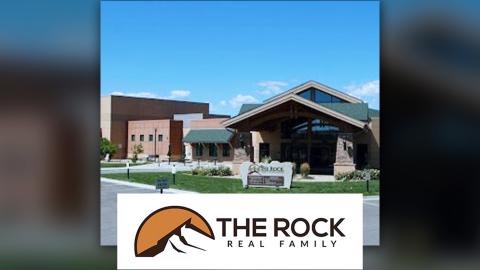Endless Empty Shelves? The Broken Supply Chain May Never Be Fixed Thanks to Woke Companies
The supply chain used to be something few people thought about. They think about it now as they gaze upon empty store shelves.
Because the empty shelves phenomenon began during COVID, many people assumed that after COVID things would return to normal. But they haven't, and that's because of problems in the supply chain that will not be fixed soon.
The really bad news is that some of the problems might never be fixed.
The Greatest Supply Chain in History Might be History
One of the most efficient supply chains in history, the one that helped you score those sweet deals from overseas and kept the shelves stocked at your favorite store; that supply chain is probably never coming back, both because of how the world has changed, and how corporations have changed.
Craig Fuller, the CEO of Freightwaves, which monitors and analyzes the supply chain, says the well-running supply chain that many of us took for granted; that gave us an economy of superabundance, is basically a memory.
"I think the golden era is probably over," Fuller said.
China is Part of the Problem
And it's more than just bottlenecks or a shortage of workers. There are new problems in the pipeline like US-China trade friction and rising manufacturing costs that have one-third of supply chain leaders saying they plan to move manufacturing out of China by next year.
"And because of that, there are ramifications for global supply chains," Fuller said, "It means that companies are going to have to look, or will look outside of China for sourcing product."
***Please sign up for CBN Newsletters and download the CBN News app to ensure you keep receiving the latest news from a distinctly Christian perspective.***
Corporate America's Self-Inflicted Problem: 'ESG'
Another big drag on the supply chain is a decision that American companies have made: adopting a new standard called ESG, which stands for environmental, social, and governance. Under ESG business practices – US companies agree to only get their product from so-called socially and environmentally responsible companies.
If a manufacturer in China or India is not deemed to be socially or environmentally responsible, the American company must find another source for its product or risk a bad ESG score with real economic consequences, like losing investors and capital.
Donald Kendal, host of the Heartland institute's 'In the Tank' podcast and an expert on ESG sums it up as "If you don't play by our rules, then you're not getting the funding."
Kendal adds, "They construct these series of metrics, this ESG score, where depending on how you check the boxes of all these different metrics, whether it's environmental things, the governance scores, the social metrics and all of that, a company can be punished or rewarded based on them, checking off those boxes and not supplying the best products and services."
In other words, the traditional bottom line…profits…is no longer the only bottom line. Now there is also ESG, and that's made the supply chain more complicated.
Fuller says, "The problem or the challenge [of ESG] is that if you're going to put that ahead of profits, then you end up having this substantial tax that it takes to do so.
ESG is a big burden on a supply chain struggling to return to normal. Experts say the supply chain will face continuing challenges for decades.
At least one of those challenges – ESG – is self-inflicted. And it is consumers who are paying for it.




